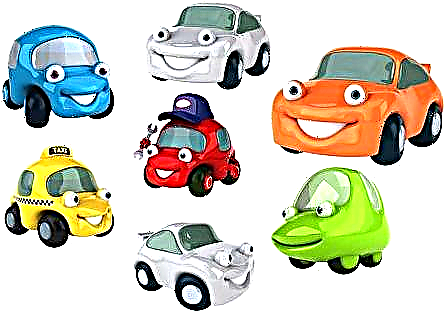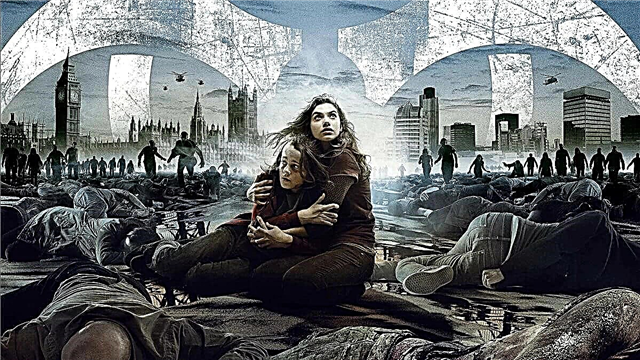A crisis is a negative circumstance that can change a country's economy. In most cases, such a description would correspond to large-scale disasters such as wars, epidemics and famine. However, some crises at first glance seem insignificant. Is it worth, for example, to worry about an excess of cattle in the country or a shortage of vultures? Well, we will tell you about the most unusual crises in the world, and you yourself decide whether they can lead to large-scale disasters or not.
10. South Korean childlessness crisis
 While Russian officials say the state did not ask people to give birth, the South Korean government has a policy of encouraging fertility - from reducing the tax burden to allowing parents with young children (up to 8 years old) to work an hour less daily.
While Russian officials say the state did not ask people to give birth, the South Korean government has a policy of encouraging fertility - from reducing the tax burden to allowing parents with young children (up to 8 years old) to work an hour less daily.
Experts estimate that at the current birth rate in the country, its population will be negative in just ten years. This means that there will be more deaths than births. If the trend continues, it is estimated that by 2750 no one will remain in South Korea.
9. The crisis of childlessness in China
 In ninth place in the top 10 most strange crises in the modern world is a situation that is very reminiscent of South Korean. A few decades ago, China introduced a “one family, one child” policy to control a rapidly growing population. The rule was strictly enforced, and the government even carried out forced abortions and sterilization of people who neglected it.
In ninth place in the top 10 most strange crises in the modern world is a situation that is very reminiscent of South Korean. A few decades ago, China introduced a “one family, one child” policy to control a rapidly growing population. The rule was strictly enforced, and the government even carried out forced abortions and sterilization of people who neglected it.
By 2015, the country's population growth rate had slowed so much that families were allowed to have two children. But it seems that most Chinese couples prefer to have only one child or none at all. And now the Chinese government claims that “having children is not only a family affair, but also a national issue” and is even considering monetary incentives for people who want to have a second child.
8. Venezuelan passport crisis
 One of the countries in the world that was close to default in 2019 suffered from severe hyperinflation, which almost paralyzed its economy. More than 2.3 million people have fled from Venezuela to neighboring Latin American countries since 2014. However, many only dream about it because they do not have passports.
One of the countries in the world that was close to default in 2019 suffered from severe hyperinflation, which almost paralyzed its economy. More than 2.3 million people have fled from Venezuela to neighboring Latin American countries since 2014. However, many only dream about it because they do not have passports.
Before the crisis in Venezuela, obtaining a passport was difficult, but possible. Now the situation has become much worse. It is known that passport office workers intentionally hold up passports, unless the person who needs a passport gives them a bribe in the amount of $ 1,000 to $ 5,000. For a poor country, this is a huge amount of money. The average monthly salary there is $ 5.
7. Health crisis in Venezuela
 Along with the passport crisis, Venezuela is also experiencing a serious health crisis. At least 22,000 doctors left the country after the death of Hugo Chavez, which caused a shortage of qualified doctors throughout the country. Many hospitals were either closed or operating irregularly. And patients are required to bring their own medicines, syringes, gloves and even soap. This has led Venezuelan hospitals to move from the status of places where people are being treated to the status of places where they are being killed.
Along with the passport crisis, Venezuela is also experiencing a serious health crisis. At least 22,000 doctors left the country after the death of Hugo Chavez, which caused a shortage of qualified doctors throughout the country. Many hospitals were either closed or operating irregularly. And patients are required to bring their own medicines, syringes, gloves and even soap. This has led Venezuelan hospitals to move from the status of places where people are being treated to the status of places where they are being killed.
In hospitals, there is also an increase in the number of burn victims. Most of them are babies who burned themselves by holding on to the kerosene lamps that replaced the bulbs.
6. Food crisis in China
 Arable land in China makes up less than one tenth of the total land area in the world, although one fifth of the world's population lives on it. In addition, most agricultural land is either occupied by industrial enterprises or contaminated with heavy metals released by these industries.
Arable land in China makes up less than one tenth of the total land area in the world, although one fifth of the world's population lives on it. In addition, most agricultural land is either occupied by industrial enterprises or contaminated with heavy metals released by these industries.
The food crisis in the Middle Kingdom began decades ago, when improving living standards stimulated Chinese citizens to eat better, while local farmland is not enough for growing vegetables and raising livestock. At present, China is managing the crisis by importing food and renting or buying agricultural land in Russia, Africa, Australia and America. However, most of the countries where Chinese farms live expect a demographic boom in a few decades and they themselves will need farmland to feed their citizens.
5. Plastic crisis in the USA
 The US government cannot recycle most of its plastics. For several years, huge "portions" of recyclables were sent to China for processing. However, in January 2018, China banned the processing of plastics from the United States. And America had to take its plastic garbage to Canada, Turkey, Malaysia and Thailand.
The US government cannot recycle most of its plastics. For several years, huge "portions" of recyclables were sent to China for processing. However, in January 2018, China banned the processing of plastics from the United States. And America had to take its plastic garbage to Canada, Turkey, Malaysia and Thailand.
But even these countries are not eager to be garbage landfills for the stronghold of democracy. Malaysia introduced a tax and limited the types of plastics that are acceptable for processing, while Thailand promised to ban the processing of American plastic for two years. In response, several US states either refused to recycle certain types of plastics, or refused to recycle.
4. The crisis of stray cows in India
 The Indian state of Uttar Pradesh is currently experiencing one of the strangest crises in history. And he is associated with homeless cows. These animals in India are sacred; they are not eaten. Because of this, farmers do not seek to keep bulls and cows that no longer produce milk. And what about these "unproductive" animals? They are simply kicked out into the street.
The Indian state of Uttar Pradesh is currently experiencing one of the strangest crises in history. And he is associated with homeless cows. These animals in India are sacred; they are not eaten. Because of this, farmers do not seek to keep bulls and cows that no longer produce milk. And what about these "unproductive" animals? They are simply kicked out into the street.
In 2012, there were 1,009,436 stray cattle in Uttar Pradesh. It is expected that this year its number will increase significantly. Stray cattle raids farmland and eats crops. And this threatens people with hunger.
3. Vulture crisis in India
 There were many vultures in India in the past. Their number was so high that no one bothered to count these birds "over the heads." According to a rough estimate, their number in the early 1990s was 40 million copies.
There were many vultures in India in the past. Their number was so high that no one bothered to count these birds "over the heads." According to a rough estimate, their number in the early 1990s was 40 million copies.
However, this changed between 1992 and 2007, when the number of vultures decreased by 97%. And today in India there are only about 20,000 vultures. Some Indians even decided that it was the United States that stole their vultures.
Remember, we mentioned that Indians usually don’t eat cows, of which there are many in the country? It was here that the vultures, who play the role of orderlies of cities, enter the stage.
Unfortunately, diclofenac, a popular anti-inflammatory drug given to cattle in India, is deadly for vultures and causes kidney failure and death in them. Now there are not enough vultures to eat carrion, as a result of which many decaying animal corpses are scattered throughout India. This put the country on the brink of an epidemic of various diseases. Rats and dogs have partially replaced vultures, but they are not so effective.
2. Suicide crisis in South Korea
 Surprisingly, in the prosperous and high-tech South Korea, one of the highest suicide rates in the world. In 2015 alone, 13,500 South Koreans committed suicide. This is an average of 37 people a day. Most of those who decided to voluntarily leave for another world are elderly people who often live in poverty and do not want to burden their relatives.
Surprisingly, in the prosperous and high-tech South Korea, one of the highest suicide rates in the world. In 2015 alone, 13,500 South Koreans committed suicide. This is an average of 37 people a day. Most of those who decided to voluntarily leave for another world are elderly people who often live in poverty and do not want to burden their relatives.
In response to high suicide rates, the South Korean government criminalized suicide pacts - agreements between two or more people who intend to engage in group suicide.
1. Renewable energy crisis in Germany
 Germany is a model nation when it comes to renewable energy. One Sunday of 2017, the country generated so much energy from renewable sources that the government paid users for the use of excess energy (for example, for turning on equipment and machines that they are not currently using).
Germany is a model nation when it comes to renewable energy. One Sunday of 2017, the country generated so much energy from renewable sources that the government paid users for the use of excess energy (for example, for turning on equipment and machines that they are not currently using).
Imagine that the Russian government pays you to turn on the washing machine for no reason. To make it clear, the authorities do not give consumers "real money." Instead, energy companies deduct them from their electricity bills.
Green energy is unpredictable and uncontrollable because solar panels and wind turbines cannot reduce or increase their power at the request of the user. They generate electricity depending on weather conditions. This leads to a crisis that the Germans call "energy poverty." Simply put, it’s hard for people to pay for electricity or they spend so much money on electricity that they don’t have enough money to survive.












